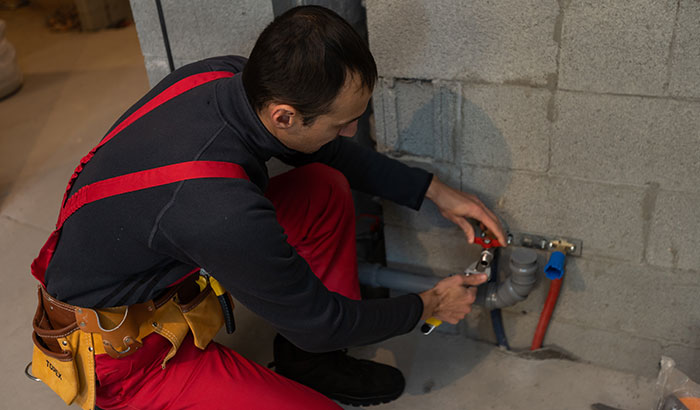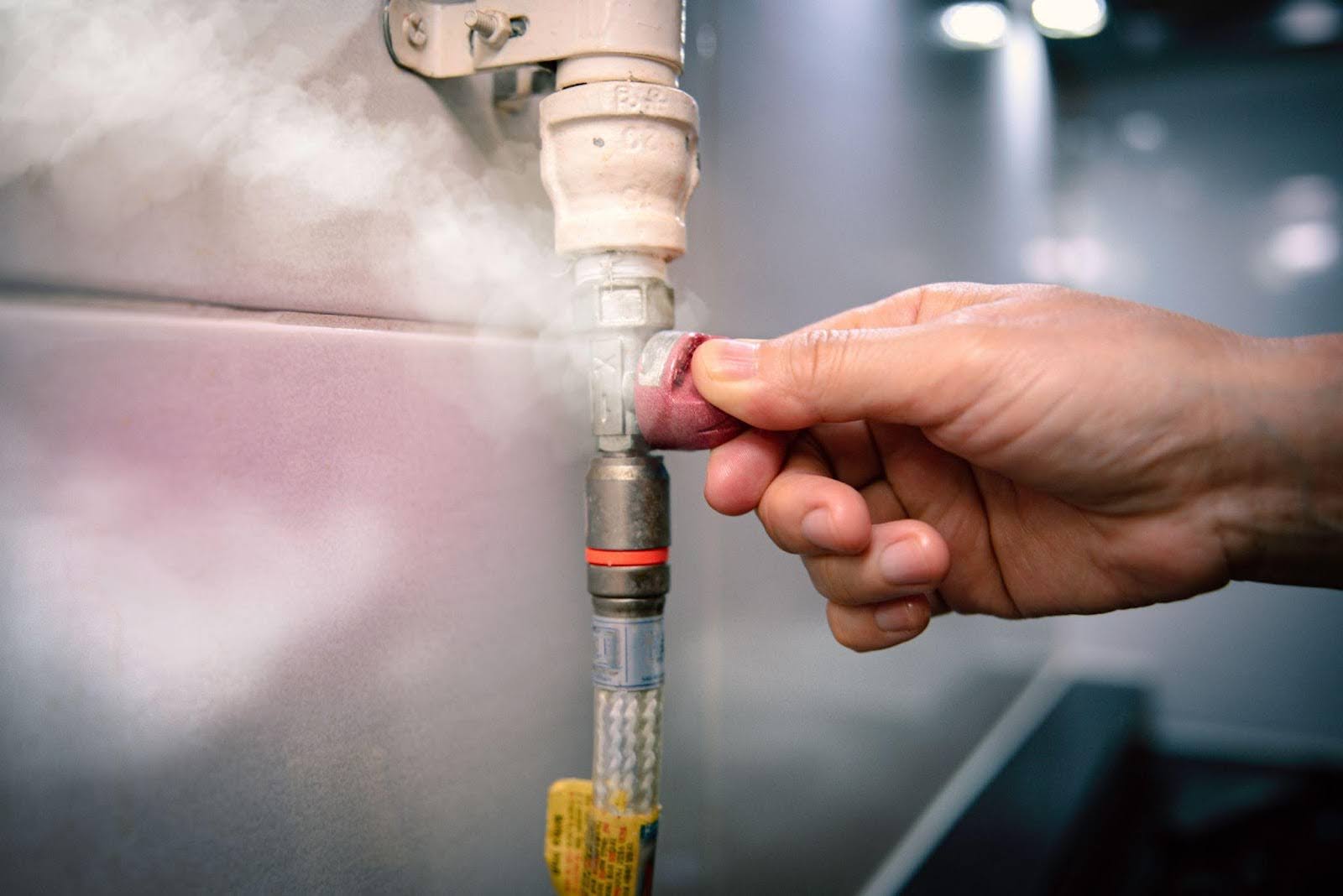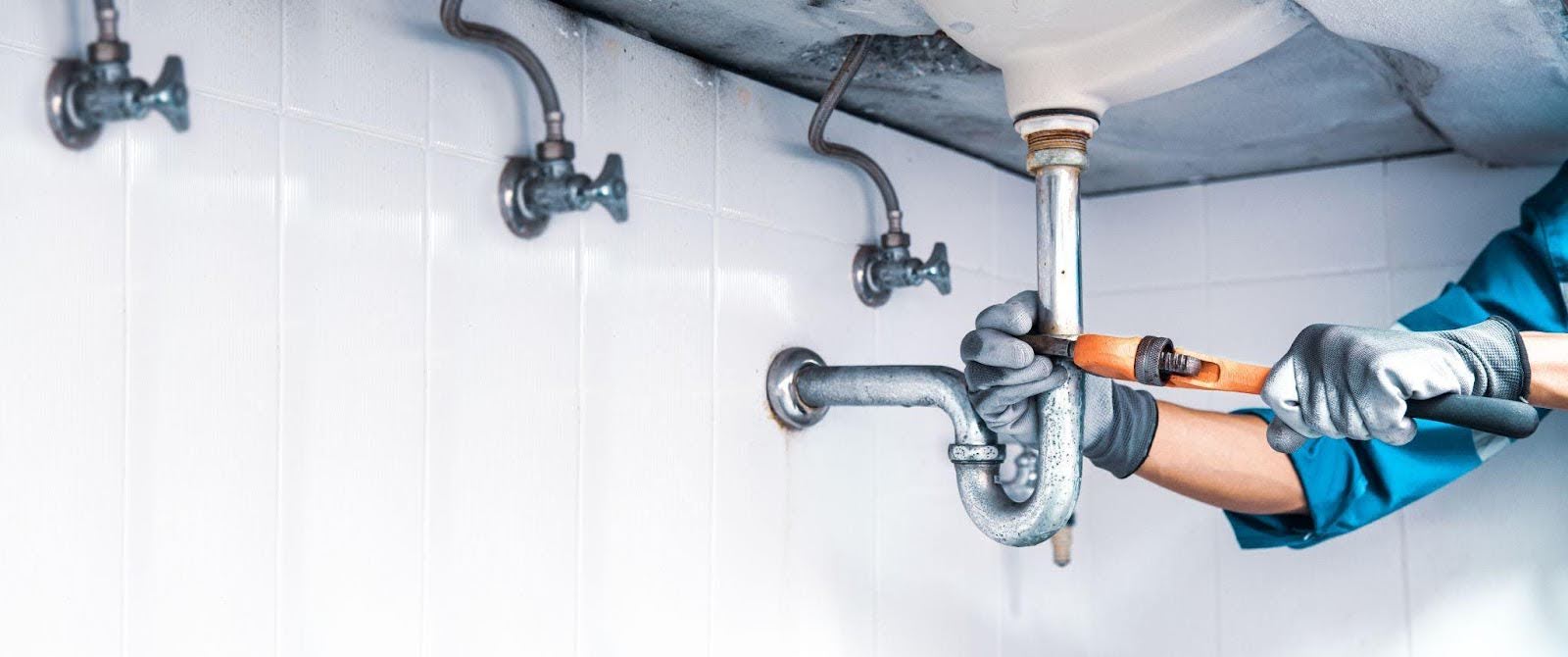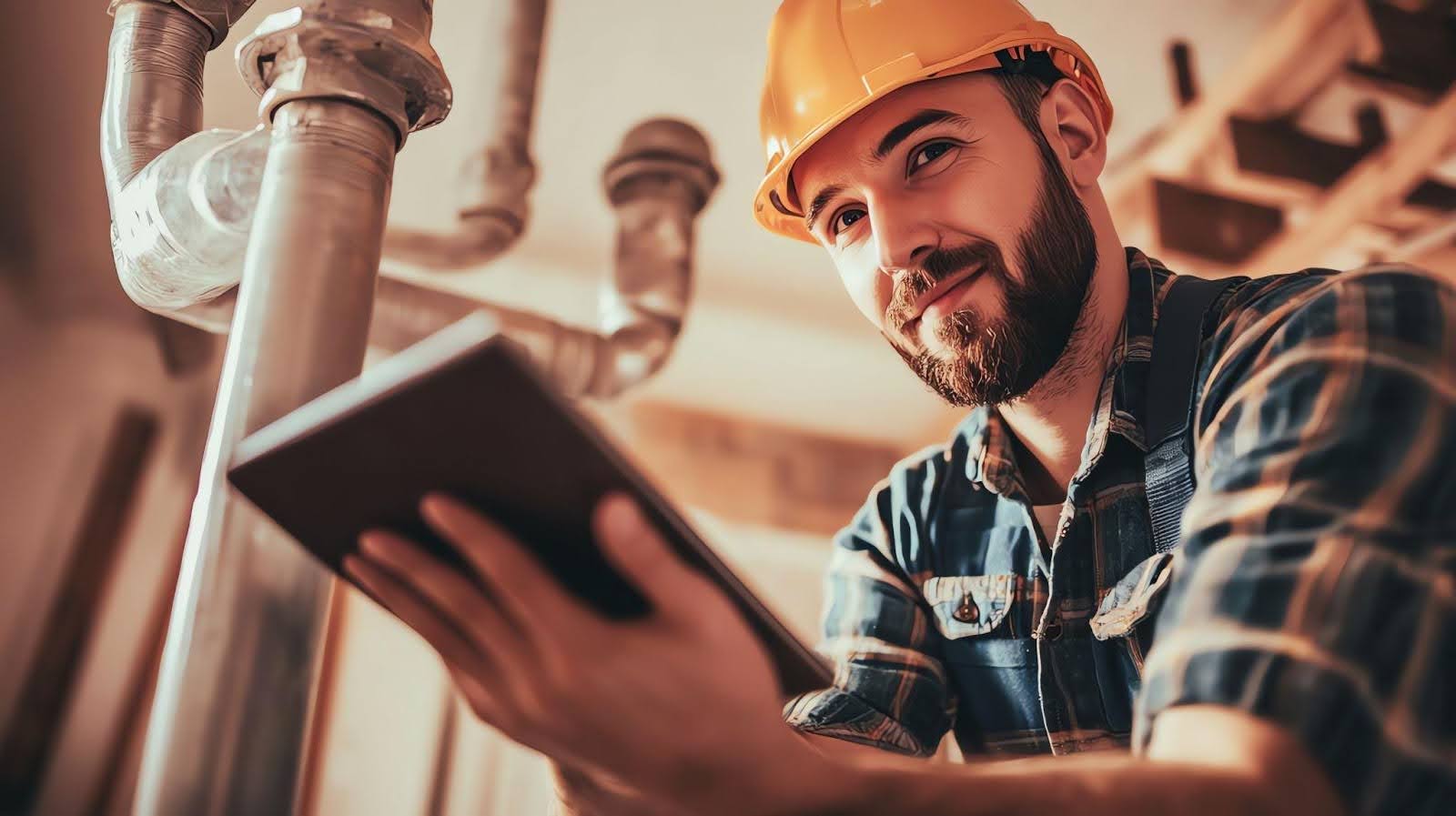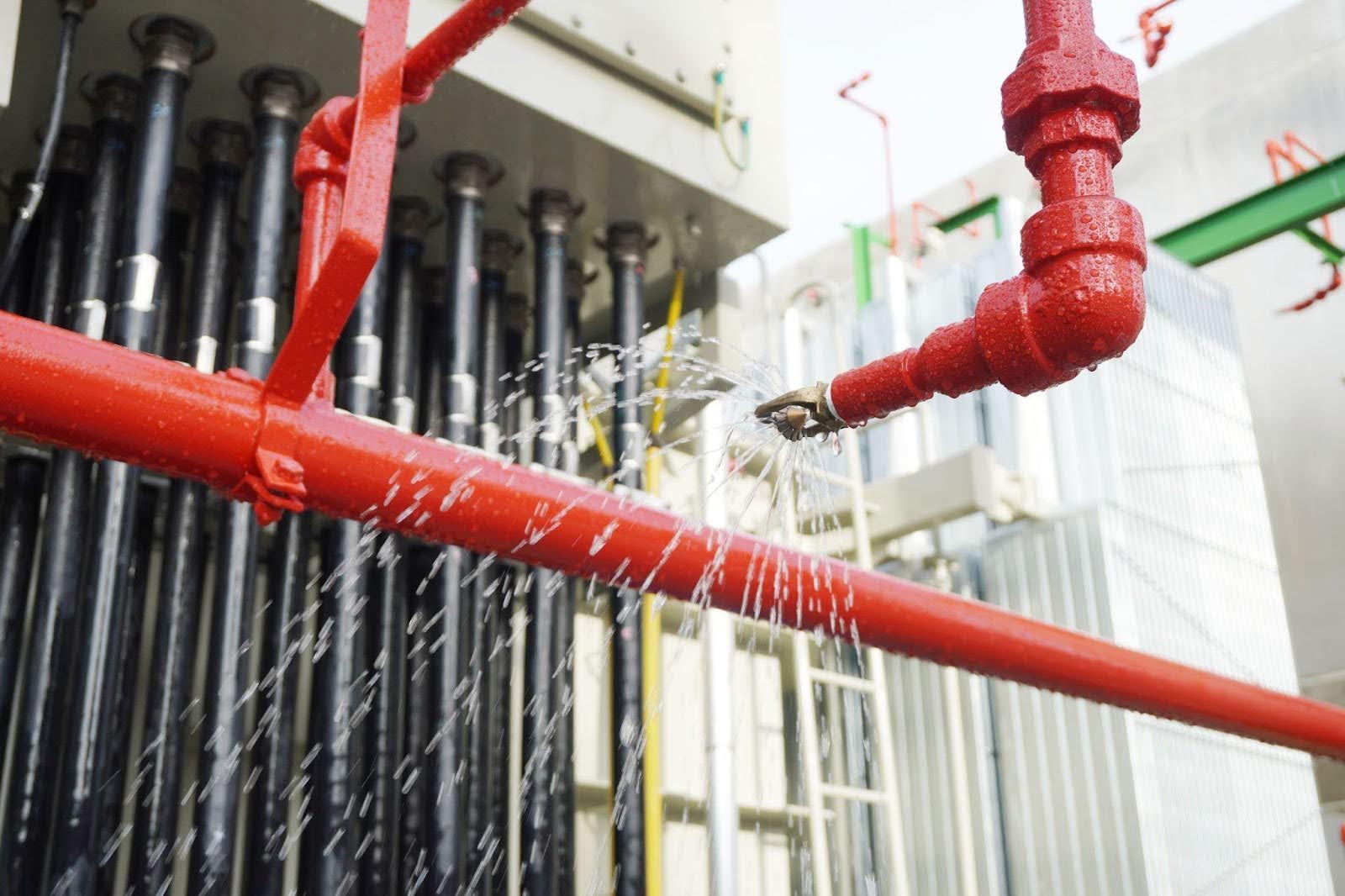When it comes to plumbing services, it’s crucial to understand the key differences between commercial plumbing and residential plumbing. Plumbing issues can be a nightmare for any property owner, whether in a commercial establishment or a residential home.
Each type of plumbing has unique characteristics that require specialized expertise for effective solutions.
Commercial plumbing involves complex systems in commercial properties such as offices, restaurants, hotels, hospitals, etc. These systems are built to withstand high usage and demand, and compliance with building codes and regulations is crucial.
Alternatively, residential plumbing caters to the local plumbing needs of homes and other residential properties, which are typically smaller and have different requirements.
As a property owner or business owner needing plumbing services, understanding these differences is essential to ensure you hire the right plumbing professionals for the job.
In this blog, we will dive into the distinct aspects of commercial and residential plumbing, providing insights to help you make informed decisions and find the best option for your needs, whether it’s residential or commercial plumbing contractors.
With our expertise in commercial and residential plumbing, we are here to assist you in resolving any plumbing issues efficiently and effectively.
Scope and Scale
One of the primary differences between commercial and residential plumbing lies in the scope and scale of the systems. Commercial plumbing systems are typically more extensive and complex than residential ones.
Commercial properties, such as office buildings or hotels, often have multiple floors, extensive pipe networks, and a higher number of fixtures, including restrooms, kitchens, and specialized equipment.
Commercial plumbing systems also need to comply with specific building codes and regulations, which may vary depending on the location and type of property. These codes often require specialized permits and inspections to ensure the safety and functionality of the plumbing system.
Commercial plumbing may involve additional considerations, such as accessibility for people with disabilities, water conservation measures, and health and safety regulations compliance.
On the other hand, residential plumbing systems are typically smaller in scale, serving the needs of individual households. Residential properties usually have fewer fixtures, and the plumbing systems are designed to handle a family’s or household’s usage demands. Building codes and regulations for residential properties may also differ from commercial properties, focusing on ensuring the health and safety of the occupants.
As a result of these differences in scope and scale, commercial plumbing systems require the specialized expertise of a commercial plumbing service.
Commercial plumbing contractors are trained and equipped to handle the unique challenges associated with commercial properties. In contrast, residential plumbing specialists are skilled in addressing the specific needs of residential properties.
Usage and Demand
Another significant difference between commercial and residential plumbing is the variance in usage and demand. Commercial properties typically have higher use and demand compared to residential properties.
For instance, a restaurant may have numerous sinks, dishwashers, and toilets that are constantly in use. In contrast, an office building may have multiple restrooms used by numerous employees and visitors throughout the day. This high usage and demand stress the plumbing system, requiring it to be more robust and durable.
Commercial plumbing systems are designed to handle heavy usage and demand, with larger pipes, higher-capacity fixtures, and sophisticated components.
Additionally, commercial properties may require specialized plumbing equipment and systems to cater to specific needs, such as grease traps for restaurants or medical gas systems for hospitals. The complexity and scale of commercial plumbing systems require expert knowledge and experience to design, install, and maintain properly.
Residential plumbing systems are typically designed for the usage demands of a family or household. While they may still have multiple fixtures, such as toilets, showers, and sinks, the overall usage and demand are generally lower than commercial properties. Residential plumbing systems are designed to be efficient, cost-effective, and practical for everyday household needs.
Commercial properties may require the services of commercial plumbing contractors more frequently for maintenance, inspections, and repairs due to the higher usage and demand. In contrast, residential properties may have different considerations based on the household’s needs.
Hiring plumbing professionals with expertise in the specific property type can ensure that the plumbing system is designed, installed, and maintained to handle the property’s unique demands.
Functionality and Maintenance
The functionality and maintenance requirements of commercial and residential plumbing also differ significantly. Commercial plumbing systems are designed to cater to the specific needs of a commercial property, such as providing water supply to multiple floors, handling large volumes of wastewater, and accommodating specialized fixtures.
The functionality of a commercial plumbing system is crucial for the smooth operation of the business, and any disruptions or downtime can result in significant financial losses and inconvenience to customers and employees.
As a result, commercial plumbing systems require regular maintenance to ensure their functionality and efficiency. This may include routine inspections, cleaning of drain lines, repairs of fixtures and valves, and monitoring of water pressure and temperature. Commercial plumbing maintenance often requires specialized knowledge, equipment, and tools to address the complexities of commercial properties.
Residential plumbing systems are made to cater to the everyday needs of a household. The functionality of residential plumbing systems is typically focused on providing water supply to various fixtures and managing wastewater efficiently. Residential plumbing systems require regular maintenance to ensure smooth operation, prevent leaks, and address any plumbing issues that may arise.
Residential plumbing maintenance may include inspections, repairs of fixtures and pipes, drain cleaning, and checking for water leaks. However, residential plumbing maintenance is generally less complex than commercial plumbing maintenance, as the scale and demands of residential properties are usually lower.
Cost and Budget Considerations
Because of the differences in size and scope, commercial plumbing installation and a commercial plumbing service will cost much more than residential plumbing.
Proper budgeting for commercial plumbing projects requires careful consideration of various factors, such as the property’s size, the plumbing system’s complexity, and the project’s specific requirements. Obtaining cost estimates from qualified plumbing professionals, factoring in the cost of permits and inspections, and accounting for unforeseen expenses are crucial to ensure the project stays within budget.
On the other hand, residential plumbing projects will typically have lower overall costs. However, homeowners should still budget appropriately for local plumbing services, such as fixture installations, repairs, or maintenance, to ensure their plumbing needs are met without incurring unexpected costs.
Budget considerations for residential plumbing projects may involve obtaining cost estimates from qualified plumbing professionals, factoring in the cost of materials and labor, and accounting for any potential unforeseen expenses. Homeowners should also consider the age and condition of their plumbing system, as older systems may require more frequent repairs or replacements, which can impact the budget.
Choose Salisbury Plumbing for Quality Commercial & Residential Plumbing Services
Need expert local plumbing services for your commercial or residential property? Look no further than Salisbury Plumbing! Our skilled plumbers are equipped with the latest tools and technology to deliver exceptional plumbing services.
We offer both residential and commercial plumbing services. Salisbury Plumbing can provide the necessary solutions whether you have a plumbing emergency or a planned project. Contact us today using our online form or call us at 385-375-1207 to schedule a consultation and experience the Salisbury Plumbing difference!
toto slot

